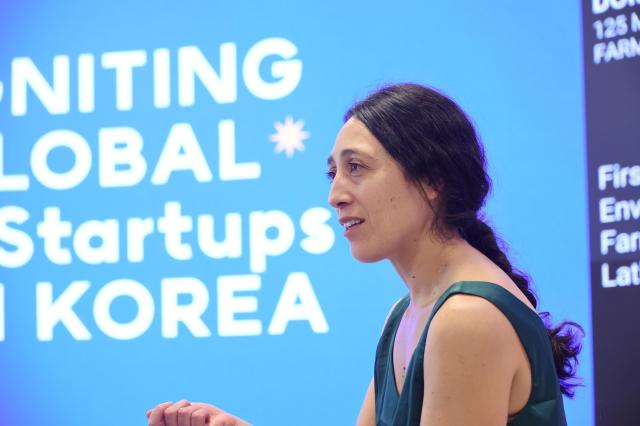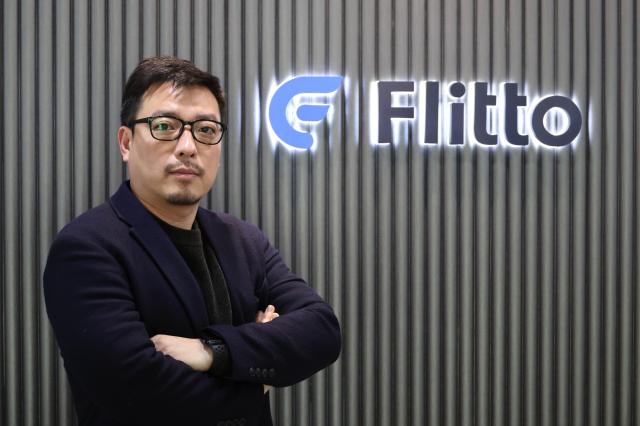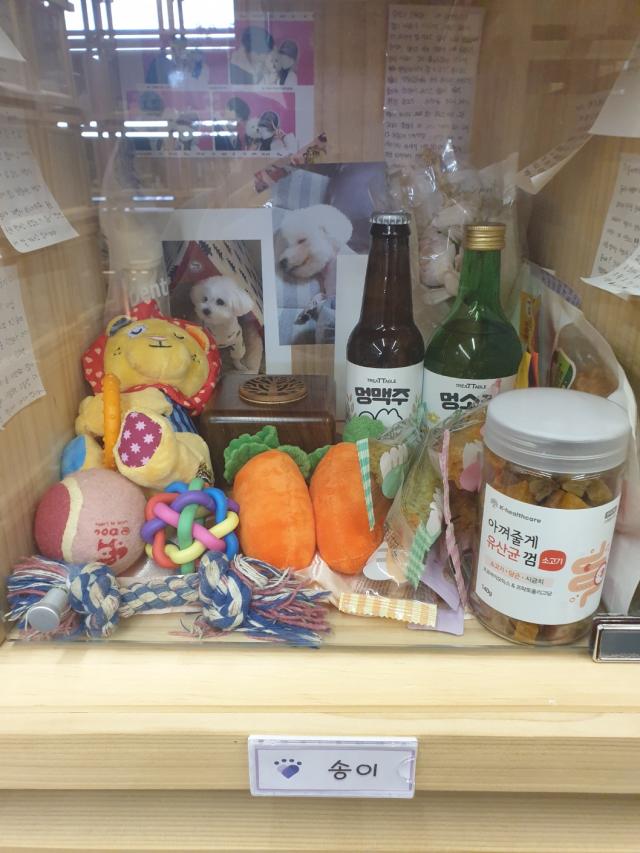
“We’re not just growing leafy greens, We’re building a more sustainable, localized food supply chain,” Larrea, the CEO and co-founder of Farmtastica, a Chilean startup focused on controlled environment agriculture, told AJP during an interview at the Global Startup Center in the southern Seoul district of Gangnam on Apr. 23.
Farmtastica was launched in 2021 with the support of Start-Up Chile, the world’s first public accelerator for startups. Created by the Chilean government in 2010, the program has helped more than 3,000 startups from over 100 countries with equity-free funding, mentorship, and access to international networks. Larrea credits the program for helping get Farmtastica off the ground.
“That first grant allowed us to build a small lab, in my co-founder’s closet, actually,” she recalled with a smile. “From there, we launched pilots with partners like Walmart and started delivering freshly harvested vegetables straight from the farm to stores.”
At the core of Farmtastica’s model is a simple idea: bring food production to the places where people live and shop. The company builds modular farms that fit into urban spaces, inside supermarkets, restaurants, even shopping malls. These compact farms grow produce on-site, eliminating the need for long-haul transport and cold storage, two major causes of food waste.
“Over 30 percent of vegetables produced globally never get eaten,” Larrea said. “Our system allows you to harvest where you buy,” she said.
Farmtastica’s indoor farms use just 5 percent of the water required for conventional agriculture and reduce carbon emissions by up to 95 percent. They don’t use pesticides and generate almost no packaging waste. The company recently opened Latin America’s first in-mall smart farm in Santiago, where customers can watch the produce grow behind glass and pick it themselves.
“We’re giving people a completely new experience,” she said.
The model is now expanding beyond Chile. Farmtastica is building a new farm for the Inter-American Institute for Cooperation on Agriculture, which will be installed at its headquarters in Costa Rica. Larrea believes this marks the beginning of a regional expansion.
“Our goal is to have a Farmtastica unit in every major city in Latin America,” she said. “Food insecurity is growing, especially in the Caribbean and Central America. Urban farming has to be part of the answer.”
What sets Farmtastica apart, according to Larrea, is that all of its technology was developed in-house. “We didn’t buy a turnkey system,” she said. “It took longer and came with more risk, but now we’re able to scale on our terms.”
She emphasized that automation only makes sense if it’s cost-effective. “There’s no point in growing the world’s most beautiful lettuce if no one can afford to buy it.”
During her time in South Korea, Larrea visited several smart farming sites, including one inside a subway station, and attended the launch of a new indoor agriculture project. She said she sees strong potential for collaboration between South Korean and Latin American startups in this space.
“There’s a lot of innovation happening in Korea,” she said. “I’d love to work with local smart farming companies and learn from what they’re doing.”
Larrea believes Farmtastica’s approach could help draw younger generations back to agriculture, not to the fields, but to technology. “Our systems don’t require agronomy degrees. They’re simple to operate and tech-driven,” she said. “This could make farming more attractive to people who’ve never considered it before.”
When asked about Farmtastica's main goal, her answer was immediate: “To be present in every major Latin American city. That’s the goal. And to keep growing. Literally and figuratively.”
Copyright ⓒ Aju Press All rights reserved.





View more comments